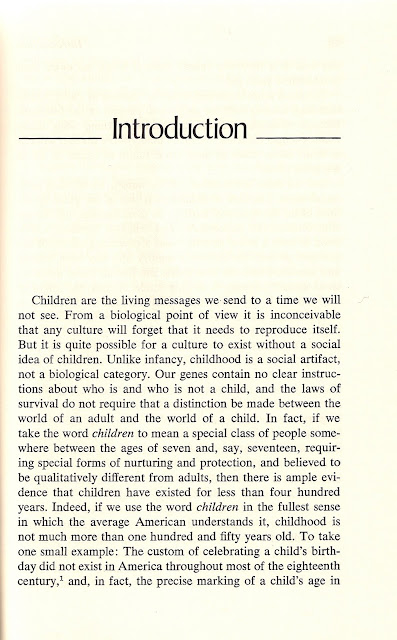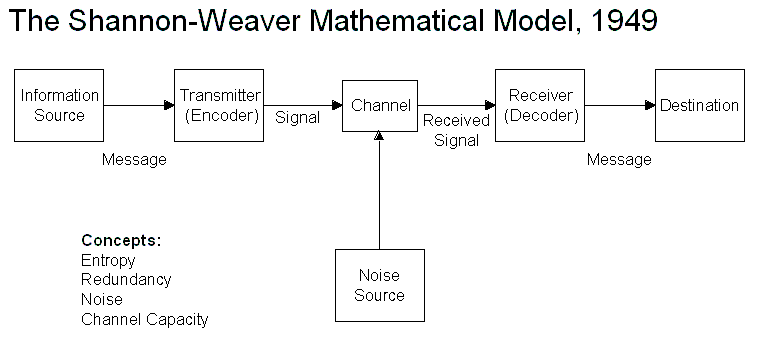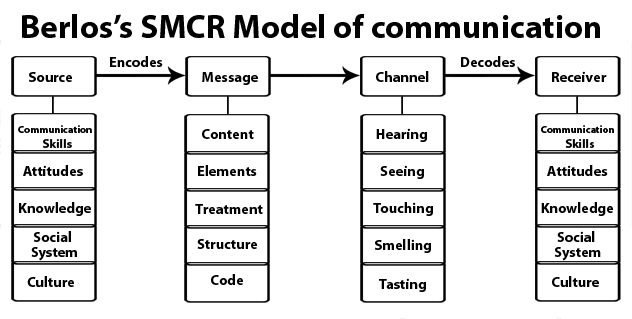This is the class blog for COMM 3307 Social Media at Fordham University's Rose Hill Campus. The students insisted on this name for the blog, the professor is totally innocent in this.
Tuesday, May 3, 2011
Tuesday, April 26, 2011
Politics Today
But, new new media can also be very damaging to a campaign. If some unknown truth about the candidate is revealed, it will spread like wildfire throughout the Internet. This would call for serious damage control both through the use of social media as well as conventional mass media. So, I see new new media as being extremely helpful for the public in terms of election. Not only do we have the potential to feel significantly more connected to our candidates, but there is also an ease with which the majority of society can learn about past scandals if they happen to come up during the election period (or after).
However, we must always be careful not to believe anything too quickly and always check stories against other sources. Although the truth has the ability to spread rapidly across the Internet, so do lies.
Obama and Digital Media for his 2008 Campaign
Tuesday, April 19, 2011
Everything Has Its Downfall
Tuesday, March 22, 2011
Digg What?
Is Burial in Digg's Future?
dirt to digg
 Digg is an online index for all news published on the web. It is a combination of stumble, facebook, and twitter. The user on Digg can search for information or news articles that pertain to their interests. Digg selects articles that fit your interests automatically. Digg also allows the user to have "friends" just like you would on facebook or twitter. Digg shows common interests between you and your friends and connects articles that interest both of you.
Digg is an online index for all news published on the web. It is a combination of stumble, facebook, and twitter. The user on Digg can search for information or news articles that pertain to their interests. Digg selects articles that fit your interests automatically. Digg also allows the user to have "friends" just like you would on facebook or twitter. Digg shows common interests between you and your friends and connects articles that interest both of you.Personally I don't think Digg is all that useful unless you are using it for your job or school work. I just don't see how being connected to people for what news articles I'm interested in is really that big of a deal. I think that although it is an interesting idea, I just don't ever see myself using this website regularly. Digg flat out isn't facebook or twitter. It's purpose isn't to connect people for social reasons but to connect people based on what news articles they like. That being said, I just don't think this type of new new media is life changing or worth my time. Google is an easier and more popular web search that finds interesting articles as well and I just don't see Digg ever surpassing that.
Sunday, March 13, 2011
Follow Me If Your Lost
but I have found it very useful for following artists,
and Professor Strate would like us to have one
so feel free to follow me if you want at :
http://twitter.com/#!/dizzysparkles
Tuesday, March 8, 2011
Children are the living messages we send to a time we will not see
Twitter: Secret Shows =)

What happened to Myspace?
MYSPAAAACCCCEEEE
Tuesday, March 1, 2011
To tweet or not to tweet
 I don't know if it's just me but it seems like Twitter has sort of skipped over our generation. The only people I hear talking about the latest tweets made on Twitter are my 11 year-old brother and various celebrities ranging from in their mid 20's to 50's. The majority of people my age, including myself, hardly even know how to use the new social networking phenomenon, let alone know what it's actual purpose is.
I don't know if it's just me but it seems like Twitter has sort of skipped over our generation. The only people I hear talking about the latest tweets made on Twitter are my 11 year-old brother and various celebrities ranging from in their mid 20's to 50's. The majority of people my age, including myself, hardly even know how to use the new social networking phenomenon, let alone know what it's actual purpose is. I can't even understand this past the first four words. It's crazy to see how Twitter has created an entirely new way for people to communicate with each other. I had to look up online what this short little tweet meant and not to my surprise, when I googled it, the first 3 pages of results were filled with countless websites outlining how to navigate and understand Twitter lingo (I didn't even bother going on to the fourth...)! I understand celebrities using Twitter as a means to keep in touch with their fans, but most tweets seem to be comprised of useless information that takes ten extra minutes just to decode. I now have a Twitter for this class but I don't think I will be tweeting anytime soon!
click here to see the plethora of online Twitter dictionaries.
I Flat Out Hate Twitter
#happy17thbdaybiebs , #isbetterthan , #guttbye , Jensen Ackles ,
Jane Russell , Ana Maria Braga , Justin Drew Bieber , Rubén González , FCAT , TAKS
I don't know whether to blame Youtube or Twitter for Justin Biebers career.
I randomly copy & pasted some tweets:
OMGTeenQuotez I think im afraid to be happy because whenever you do get too happy, something bad always happens
Very useful instruction for the maintenance of teen depression from media outlet OMGTeenQuotez.
Heres a strange one:
From 'The Social Network' to 'Citizen Kane', plenty of great movies have been losers at the Oscars.
Thats from Time Magazine, too. With so many advertisements, so to speak, for links to companies websites in the interest of their site traffic, it makes you wonder what you're really doing on Twitter. That Tweet is an advertisement for an article which has an advertisement, all of which are paid for with your eyeballs.
Is Twitter Really Necessary?
I think twitter is also in respect to developing one's career. One of my friends really wanted a job at a certain magazine company so he tweeted to their senior editor numerous times, eventually getting the opportunity to interview there. Having showed initiative and enthusiam for working at the magazine through tweeting and having a great interview, he was hired. I find it amazing what an influence twitter can have in accomplishing career goals.
However I am still on the fence about getting a twitter. I find some of my friends twitters quite amusing, while I find others extremely annoying and narcissistic. What would I even tweet about? Who would I follow? Actually, I would probably follow Aziz Ansari.
Tweet About Twitter
140 chars will show how useful a tweet is. They entertain and even contain news. Hence athletes, celebs and media post. Most is fluff tho.
I don't want to detract from the efficiency of the post by expounding on this much further except to say that I got the idea to do this out of sheer laziness. However, after trying it out once or twice, I realize I would've saved more time by just writing a novel. Tweeting is freaking difficult.
Not All Twits Can Tweet
 Picking a user name is hard. Using Twitter.com/YourRealName is too boring. The trend of placing "Not" or "The Real" followed by one's name has quickly become cliche. Yes, The Real Shaq is indeed Shaq. Far and away the best user name on all of Twitter belongs to Full House star, Jodie Sweetin (@JodieTweetin). No, that is not debatable. It is fact.
Picking a user name is hard. Using Twitter.com/YourRealName is too boring. The trend of placing "Not" or "The Real" followed by one's name has quickly become cliche. Yes, The Real Shaq is indeed Shaq. Far and away the best user name on all of Twitter belongs to Full House star, Jodie Sweetin (@JodieTweetin). No, that is not debatable. It is fact. Limited to 140 characters. You know how hard it is to strip down a sentence to the bear essentials? To trim a sentence of the fat that is grammar and all other writing conventions, just down to the absolute minimum needed for comprehension? As Levinson said in New New Media, simply saying "I'm bored" takes the flick of a finger, but trying to compose a message with any kind of thought-filled-statement takes 10 or 15 minutes, and I've found that to be true. Do I keep this apostrophe, remove this comma, and delete this word? If nothing else, Twitter shows us how we are all masters of the English language. To be able to change it around, chop it up, and still get a point across is an impressive feat, and testament to our decoding skills.
Poorly Organized. It is very difficult to find people. If you are searching for a person, the results yield a list of tweets which mention that person. The people results are separate, and often times make it difficult to discern which account is real (unless it is verified). Even more frustrating is having to sift through "following" and "followers." There is no efficient search like Facebook has once you start typing a friend's name and it fills in the rest. For you popular kids, thumbing through your 1,400 Facebook friends every time you wanted to find someone? Well you don't have to strain your imaginations because on Twitter this nightmare is a reality--and they aren't even in alphabetical order.

Who to follow? Twitter's user base is radically different than Facebook's. Chances are your friends don't have a Twitter account. So who do you follow? Celebrities? Well celebrity or not, I don't feel more complete knowing that Larry King is enjoying a beautiful day in Mexico City. Once a sizable number of people to follow has been established, there is no easy way to look through the Timeline to see "what's happening?" More often than not, the only visible Tweets are from the 2 people I follow who Tweet every 30 seconds.
Unlike Pownce you can't include images, music, or video in a Tweet. If you want to include an image you have to make a separate account--TwitPic. Even including a link requires the extra step of going to bit.ly. We don't want extra steps, we want everything to be integrated into one place, and for it to be easy. Trying to use Twitter has been an uphill battle. Micro-blogging may sound quick and easy, but so much of Twitter is such a challenge that needs to be made easier.
Follow me @idontgiveaDan.
Monday, February 28, 2011
If it's important, it'll be on Twitter
 That's a joke my friends and I have. If something is important enough these days, you don't watch CNN or go to the BBC website... You definitely don't read the newspaper. Jokingly, although sadly half-meant, we think that is something is newsworthy, it will trend on Twitter.
That's a joke my friends and I have. If something is important enough these days, you don't watch CNN or go to the BBC website... You definitely don't read the newspaper. Jokingly, although sadly half-meant, we think that is something is newsworthy, it will trend on Twitter.Is Twitter Worth it?

Let me start by saying I do not want a Twitter. I have no need to make one and I'll give some reasons why.
First: I understand that many people have a Twitter just so they can follow their favorite celebrities. However, there are ordinary people who like to tweet just for the fun of it. But there will always be one person who loves to tweet every detail of their day. These people exist even on Facebook, but there you can always hide their posts. I don't know if that is a setting on Twitter since you probably wouldn't follow those people anyway. But if it's one of your friends, you feel kinda obligated to follow them. That is just one of my social networking pet peeves: those people who find it necessary to tell the world every detail that's going on.
Second: I don't have a favorite celebrity that I need to know their life story. I don't have a need to follow sports teams since I can get all the information from espn.com. And to be totally honest, I don't need another social networking site to procrastinate more of my time on as it is.
Third: As Professor Levinson points out, the average age of Twitter users is 37. That is probably because many of those users do not want to create a Facebook. But that means that many of my friends aren't actually Twitter users. So unless I want to follow celebrities, sports teams, or just so I can say I have a Twitter, I don't see the need for creating one.
Professor Levinson talks about a Congressman who didn't update his privacy settings on his Twitter page. It seems that many people today never actually take the time to read directions or small updates that have been made. That is why when something electronically new (that I have never used before) comes out into this world, I always try to read, or at least skim the basic directions. But I try to read the advanced directions because you never know what else something can do. For example, Gmail has filters that can automatically label, skip the inbox, or even star your messages. Sometimes, it's actually worth those extra minutes to read the features of something new, especially something that can go public.
Follow Me

Instant gratification is what our world thrives on. Whether it is losing weight quick, or hearing news first, quicker is always better when it comes to results. This is what makes Twitter so great and one of the reasons it is gaining popularity throughout the nation. While it is so simple, the concept seems to be very effective and accepted. It is all about immediate communication and status updates. People are able to create one-liners that are sent and received with the “flick of a finger.” The accounts are free and anyone can have one which makes it accessible to everybody. Ordinary people can follow their favorite celebrities throughout the day or their friends and peers. You can “tweet” them with the hope that they will “tweet” you back. My best friend who is obsessed with DJ Tiesto is an avid follower of his Twitter and was lucky enough for him to “tweet” her back when she was abroad last semester. This concept of interpersonal communication with someone that you would never be able to actually speak with is fascinating. She was ecstatic with his response and this kind of made me want to get my own Twitter in order to receive contact from my favorite celebs. Twitter also makes it possible to know where certain artists will be, whether they are having a concert or doing a book signing, otherwise not to be known.
Personally, I do not have a Twitter and do not have any desire to have one. I understand why celebrities may have one to enhance their publicity and to get their name out there, but I really do not see why ordinary people have Twitters, other than to follow celebrities or companies. People will update their statuses just as much as their Facebook, but for what reason? Does anyone actually care what you are doing at this very minute or how your midterm went? If people actually did care, they would talk to them in person, rather than broadcasting otherwise withheld information to the public. I honestly feel like it is an invasion of your own privacy, but people feel the need to let everyone know what they do and how they feel. Like Facebook, it is just another way for people to glorify their daily activities.










